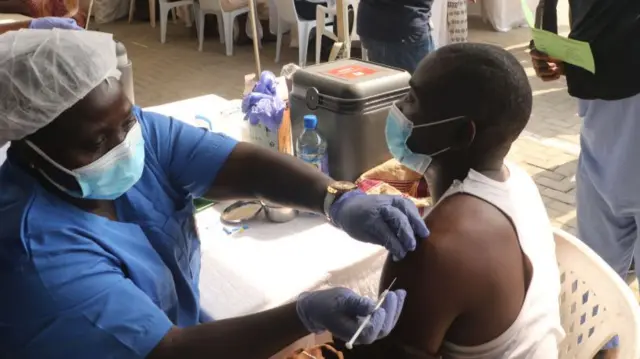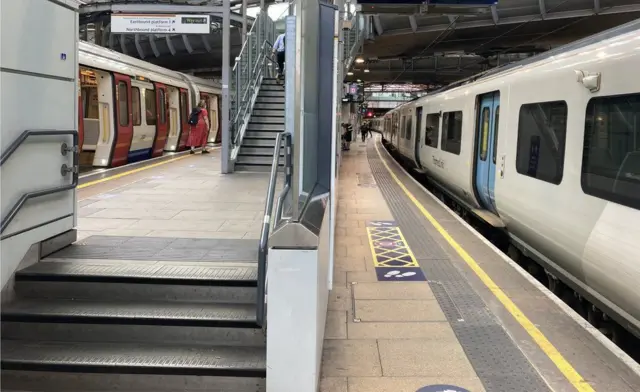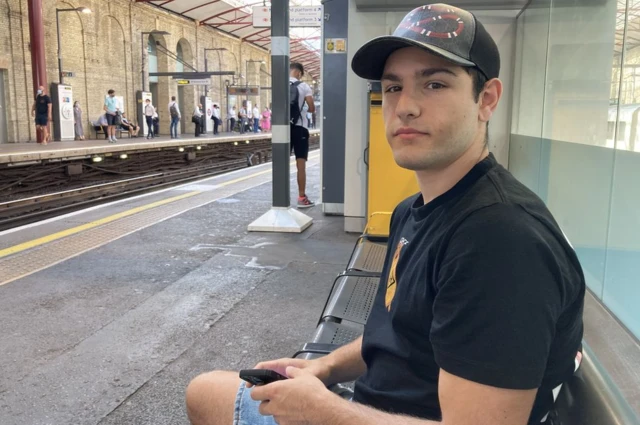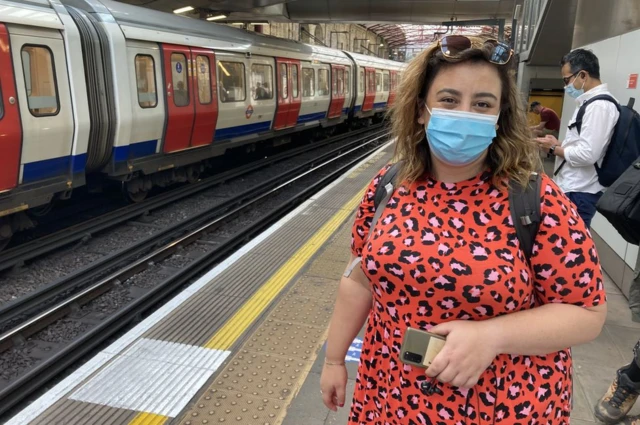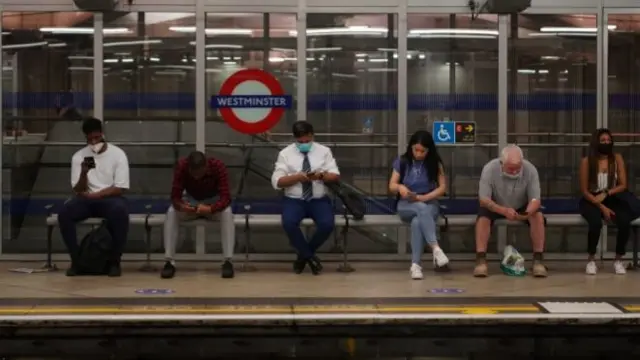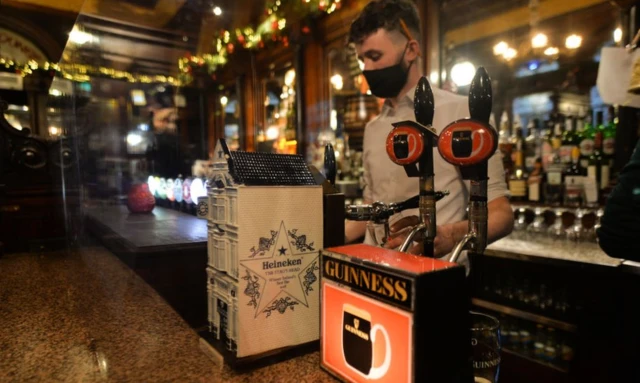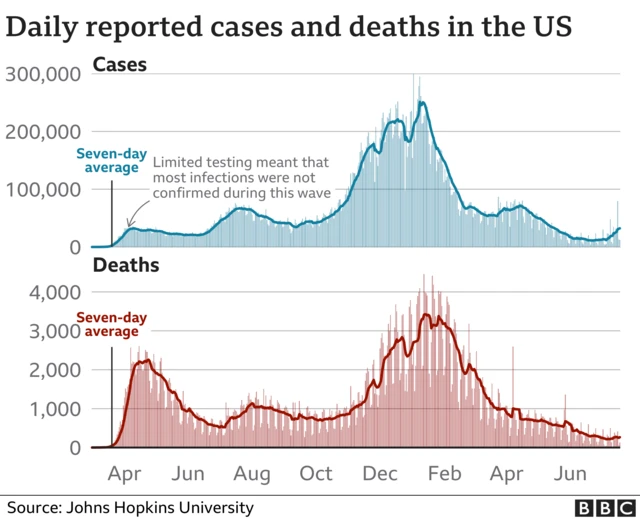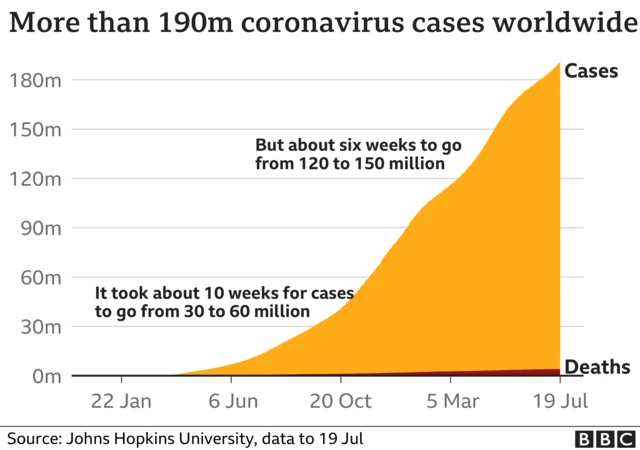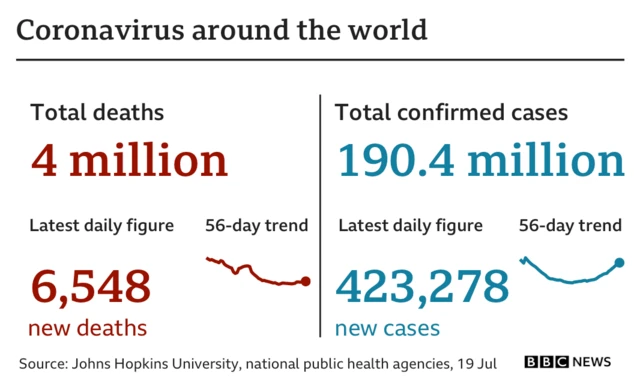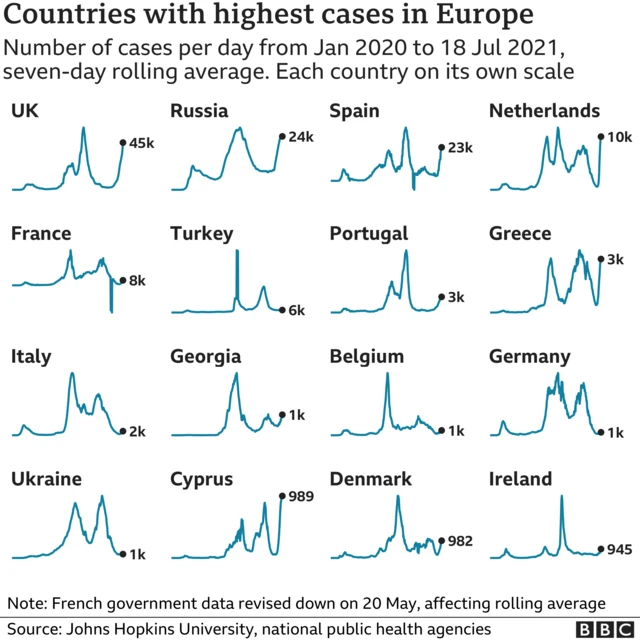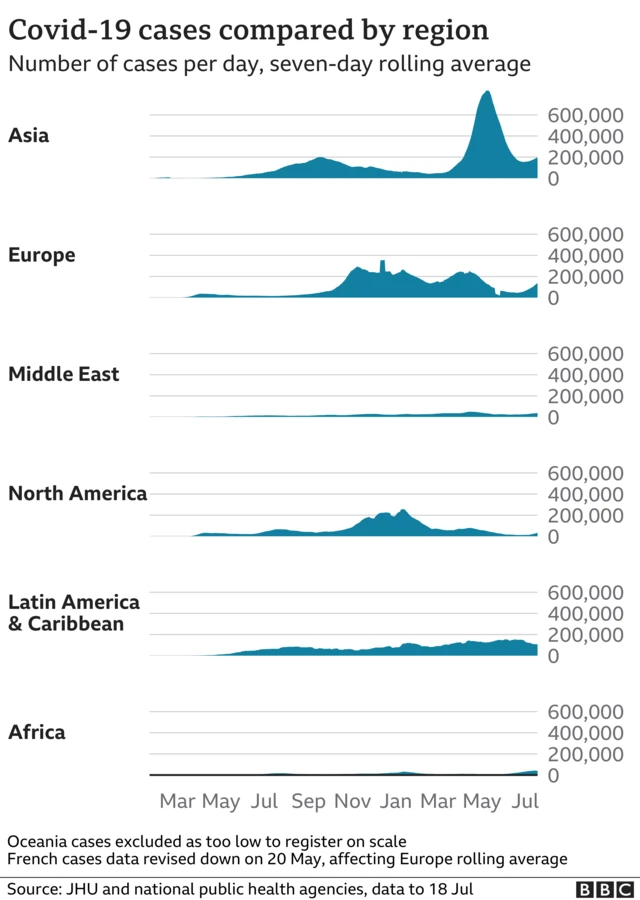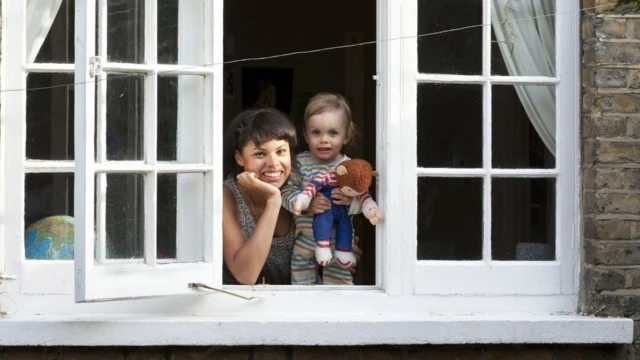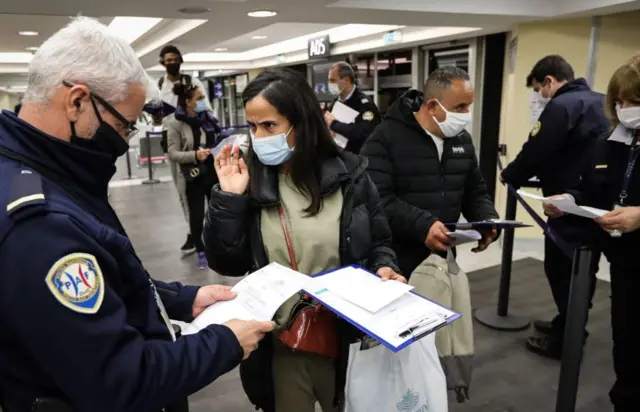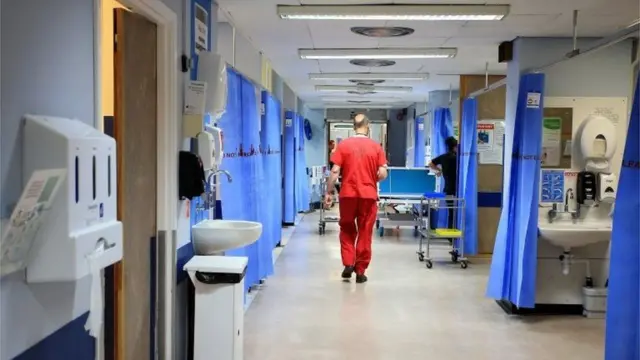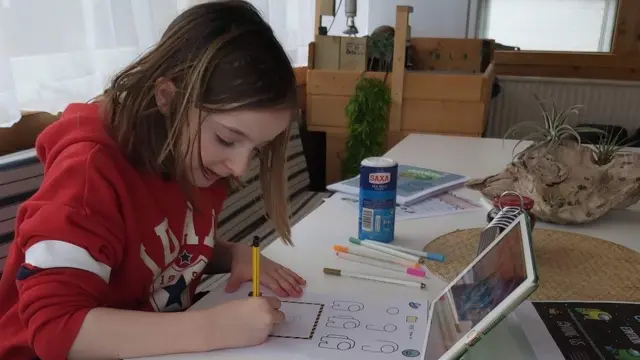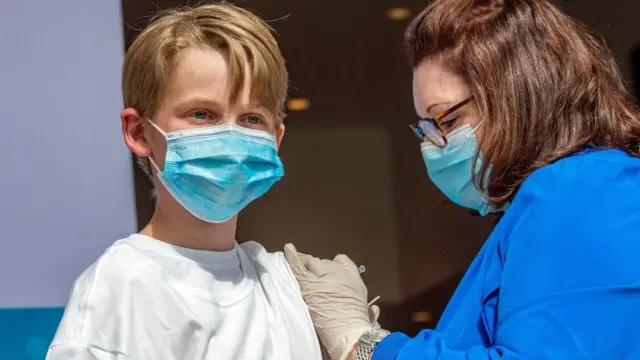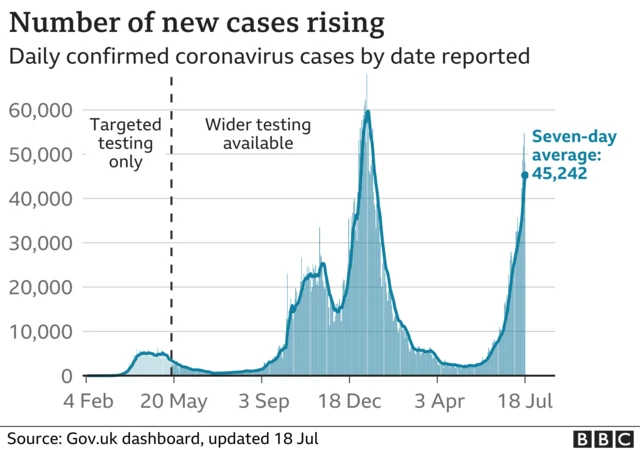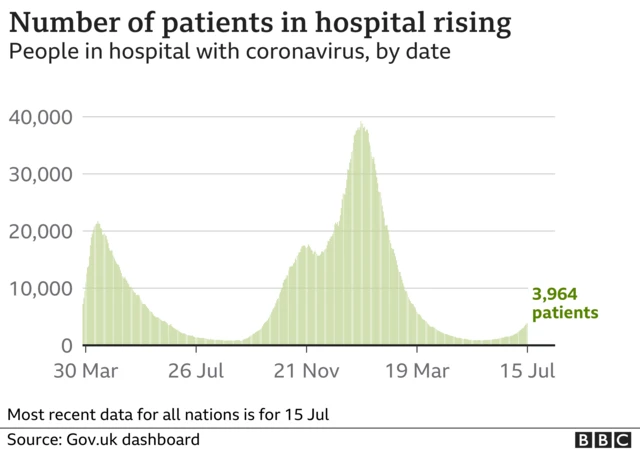What's happening around the world this lunchtime?published at 12:34 BST 19 July 2021
If you're just joining our coverage, here's a round-up of the day's top coronavirus stories:
- Prime Minister Boris Johnson has urged caution as most legal restrictions on social contact are lifted in England. There are now no limits on how many people can meet or attend events; nightclubs reopened at midnight; and table service will not be necessary in pubs and restaurants
- Scotland has moved to its lowest level of Covid restrictions as it continues on its roadmap out of lockdown. The move to level zero means more people will be allowed to meet indoors and attend weddings and funerals
- Experts have recommended that a limited group of children should be offered Covid jabs to protect them against the pandemic ahead of winter. The group includes children who are almost 18, vulnerable to Covid or who live with people who were clinically vulnerable
- Iceland and Greene King are among the businesses to say they have had to shut shops and pubs due to staff shortages caused by people being forced to self-isolate by the NHS Covid app
- Controversial British commentator Katie Hopkins will be deported from Australia for bragging about flouting hotel quarantine rules. Ms Hopkins - who has often drawn anger for racist remarks - had entered the country to star in TV show Big Brother Australia
- And finally, two vaccination centres have been ransacked in France amid protests over the government's introduction of tougher coronavirus rules

